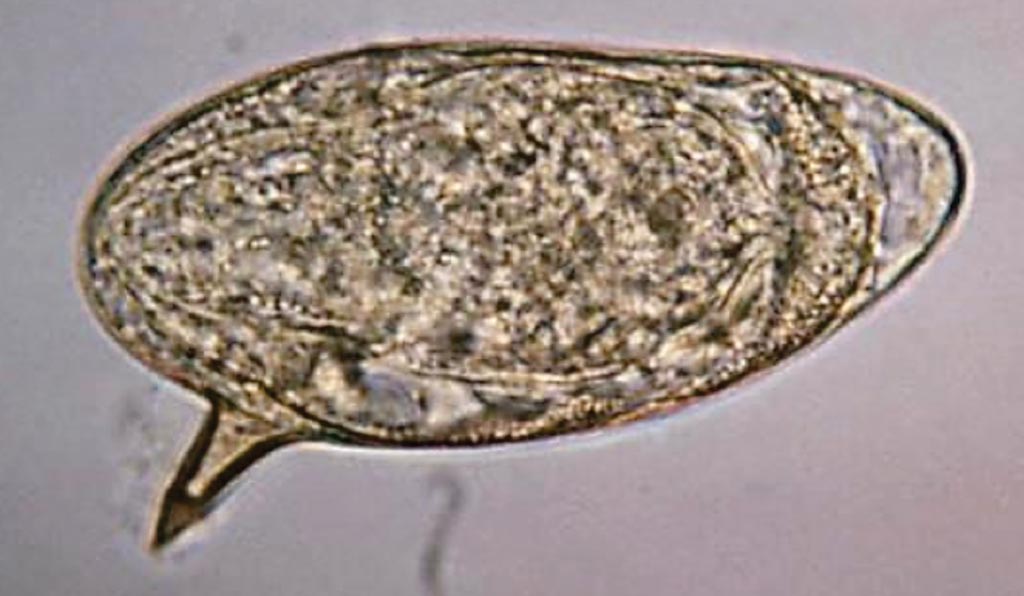Accuracy Evaluated for Schistosomiasis Tests
By LabMedica International staff writers
Posted on 03 May 2017
The unprecedented increase in number of African refugees arriving in Europe is confronting clinicians and general practitioners with the question of whether or not and how to screen migrants from endemic regions for Schistosoma mansoni infection.Posted on 03 May 2017
Schistosoma mansoni is a significant parasite of humans, a trematode that is one of the major agents of the disease schistosomiasis, which is one type of helminthiasis, a neglected tropical disease. S. mansoni, the cause of intestinal schistosomiasis, is the most widespread of the human-infecting schistosomes, and is present in 54 countries. These countries are predominantly in South America and the Caribbean, Africa including Madagascar, and the Middle East.

Image: A photomicrograph of an egg from the parasite Schistosoma mansoni reveals the egg’s characteristic lateral spine, from a stool specimen (Photo courtesy of the CDC).
Scientists at the Swiss Tropical and Public Health Institute and a Dutch colleague assessed the accuracy of three different diagnostic tests for S. mansoni infection: stool microscopy with the samples prepared by sedimentation technique; serology, and a point-of-care circulating cathodic antigen (POC-CCA) urine cassette test, in 107 newly arrived asymptomatic Eritrean refugees in Switzerland.
The team found that 63 (59%) study participants were tested positive by at least one of the three methods. Thirty-seven participants (35%) were considered to have active schistosomiasis, either due to the detection of parasite eggs in stool and/or the presence of a concordant positive serology and urine POC-CCA test, which the scientists considered to be a suitable surrogate marker of active infection. Of 23 microscopy-positive participants, 22 were positive in serology (95.7% sensitivity) and 21 were positive in the urine POC-CCA test (91.3% sensitivity). The combination of serology and urine POC-CCA testing detected all 23 microscopy-positive study participants (100% sensitivity).
The authors concluded that with a sensitivity of 100% (95% confidence interval (CI): 82.2-100%), the combination of serology plus urine POC-CCA testing appears to be the most sensitive screening option for asymptomatic S. mansoni infection in Eritrean refugees, when compared to stool sedimentation microscopy which requires the employment of a skilled microscopist. The study was published on April 19, 2017, in the journal Clinical Infectious Diseases.














